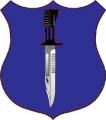Hello all.
I'm currently in the process of doing a research paper for a class on war and peace. The quoted text below is my thesis. The basic premise is that the multi-polar political system has flooded the state actors with information. New technology also enables the participation of significant non-state actors, and more effective management of the information collected. As a result, the strategic aspects of intelligence will more directly influence all levels of decision making and execution ('strategic corporal'). The ways in which state actors discriminate information will dictate their actions. This creates the appearance that war has transformed, though its basic drivers remain the same.
Reviewing my thesis, I in my mind come to a resounding "duh, so what?" at the end. So my questions are:
(1) To what extent is strategic intelligence relevant to state decision making on war?
(2) In what ways has technology transformed, or modified, the relevance of intelligence, if at all? Does an increase in capabilities generate a proportional increase in dependence on the effects it enables?
(3) What is the link between the causes of war and intelligence? Are states more likely or less likely to enter conflict with more effective information management?
I've put together a list of 20 or so sources, so I'm currently wading through the waves of pages and concepts to connect all the components together. Thanks for any assistance.
The “transformation” of warfare, its increased intensity, and decentralization originates from the increased tempo of the decision-making process enabled by technology and facilitated by the factional nature of the modern political system. Underneath the masks of ideology and religion, the fundamental drivers and components of war remain the same. The concept of hard power, operationalized by the military as firepower and maneuver, remains essentially unchanged, but now existing in the modern context of a fragmented political structure. The notion of soft power arises from the complex dynamic of political, military, and economic interactions on multiple levels, shifting focus from dominance to influence, and an orientation on the effects that may be produced by a variety of compulsive means other than physical violence. For this reason, the nature of intelligence in war has undergone the most notable transformation. The capacity to make relevant decisions more rapidly than the adversary has become of extreme importance due to the fluid and mixed environment in which war and politics now exist. Information management which enables this capacity by increasing the tempo of the decision-making process will have a decisive impact on all levels of warfighting. This paper will focus on the strategic aspects of war where the political and military aims work in collusion, and why strategic intelligence will define the security challenges of the 21st century. The method in which state actors collect, evaluate, and apply strategic intelligence will decisively judge their fate.







 ) Presidents are limited by the capabilities of their bureaucracies. Finally, recognize the wisdom of Clausewitz' (Saint Carl to the denisons of SWJ) in his one point of total consistency through all 8 books, that war is the continuation of policy/politics with the addition of other means.
) Presidents are limited by the capabilities of their bureaucracies. Finally, recognize the wisdom of Clausewitz' (Saint Carl to the denisons of SWJ) in his one point of total consistency through all 8 books, that war is the continuation of policy/politics with the addition of other means.

 The Howard/Paret translation with essays by both along with Brodie and the latter's commentary is superb. Despite being written in great detail at the end of the Napoleonic era, it is surpising how well the examples hold up today. Unlike Sun Tzu, who writes in aphorisms, Clausewitz goes into excruciating detail and that is, I think, one of the real strengths of the work. The examples he chooses often are timeless. So, whoever said tha old dogs (like me) can't learn new tricks? (And if you are reading this Steve Metz, I will expect a remark to resemble since I just left myself wide open.
The Howard/Paret translation with essays by both along with Brodie and the latter's commentary is superb. Despite being written in great detail at the end of the Napoleonic era, it is surpising how well the examples hold up today. Unlike Sun Tzu, who writes in aphorisms, Clausewitz goes into excruciating detail and that is, I think, one of the real strengths of the work. The examples he chooses often are timeless. So, whoever said tha old dogs (like me) can't learn new tricks? (And if you are reading this Steve Metz, I will expect a remark to resemble since I just left myself wide open.

Bookmarks